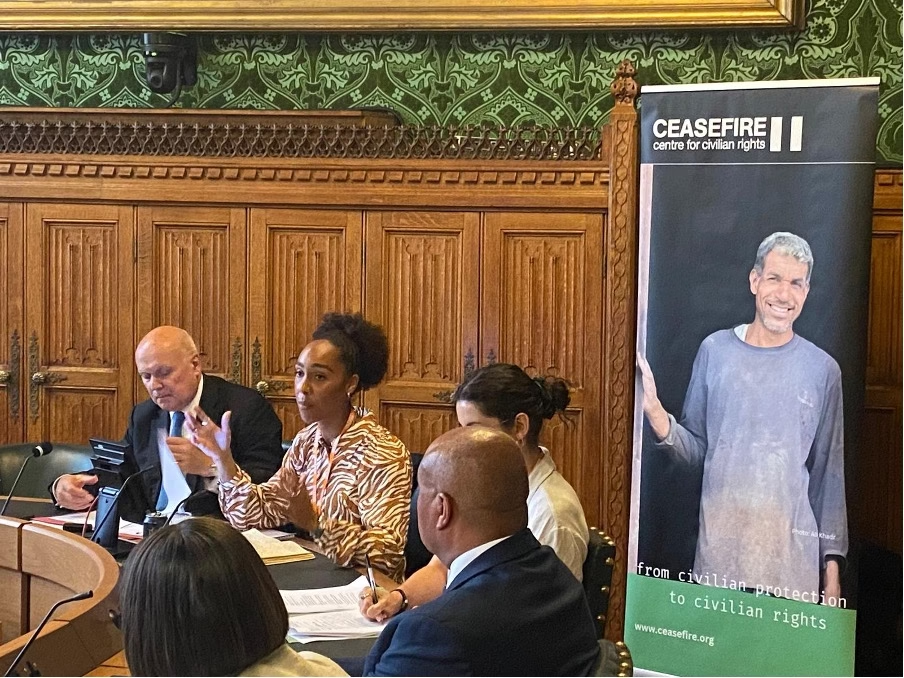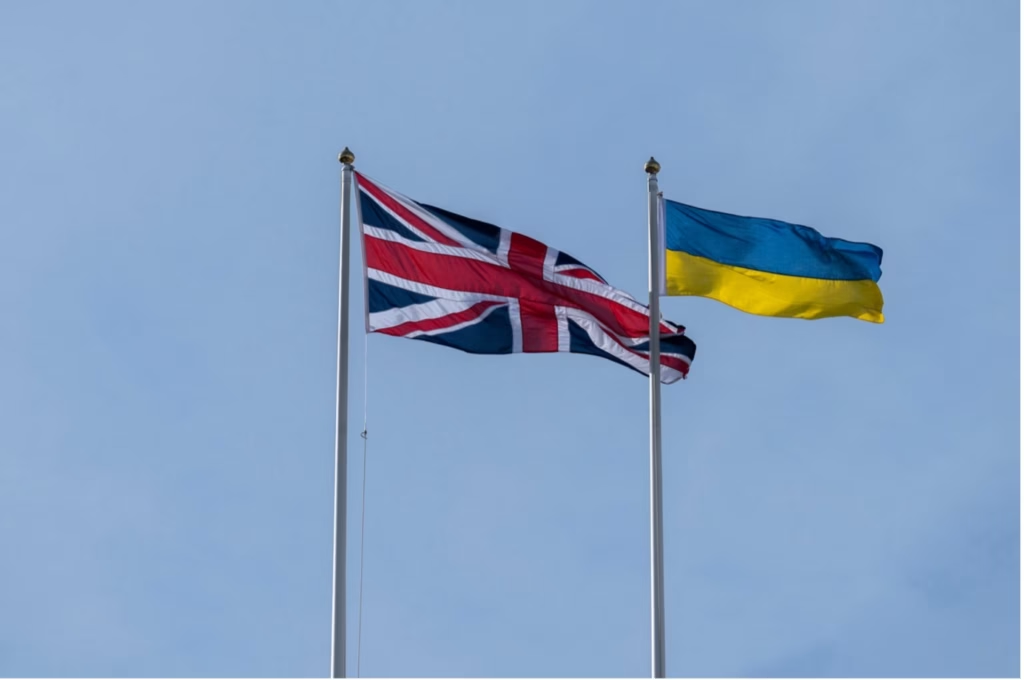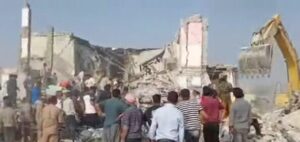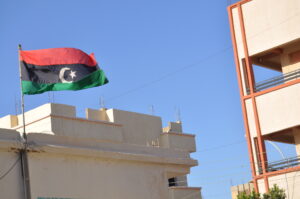While the possibility of peace negotiations remains uncertain, Russia’s bombardment of Ukraine continues, with Ukrainian civilians coming under renewed attack. Civilians harmed by the conflict have a right to prompt and adequate reparations. And while significant progress has been made, including the UN General Assembly’s condemnation of Russian aggression, the Council of Europe’s establishment of an international Register of Damage for Ukraine, and the freezing of Russian financial assets in many jurisdictions, the drive to make Russia pay reparations is stalling, and planning for their delivery is lagging. In the meantime, victims and survivors urgently need interim support to begin rebuilding their lives.
Since Russia’s full-scale invasion in 2022, the UK has committed up to £21.8 billion in military and non-military support to Ukraine, including the provision of £477 million in humanitarian assistance and £11.5 million to support Ukraine’s domestic war crimes investigations. The UK has thus become a crucial partner supporting not only the war effort but also recovery and accountability. It continues to do so as a founding member of the Register of Damage for Ukraine and a supporter of plans for a Claims Commission. The UK has also sanctioned more than 2,500 individuals, entities and ships, and frozen £25 billion of Russian assets. However, there is more that can be done to utilise this system of sanctions, prioritise accountability and promote international efforts towards judicial and political avenues for victims to receive full reparations, while at the same time supporting interim efforts to assist victims and affected communities.
Detention of civilians
A report published by the Eastern Ukrainian Centre for Civic Initiatives (EUCCI) and Ceasefire Centre for Civilian Rights (Ceasefire) in March 2025 describes how arbitrary detention has been a prominent cause of civilian harm in Ukraine, particularly since Russia’s full-scale invasion. Since the start of Russian occupation in 2014, many Ukrainian civilians have been detained by Russian forces ‘based on their possible political views or legitimate exercise of freedom of expression, including local government officials, community activists, humanitarian aid volunteers and informal community leaders, such as teachers and priests, as well as people who peacefully protested against the Russian occupation in public spaces or on social media.’ The report underscores the link between arbitrary detention and conflict-related sexual violence; ‘almost every second civilian interviewed by the EUCCI since 2014 has mentioned sexual violence in detention centres, which they either witnessed, heard about, or personally endured.’
Many victims and survivors report receiving little to no support after their release. One victim of detention told EUCCI that ‘financial support was important to me [after being released from captivity] because I could not go to work. I was in such a psychological state that I did not leave the house for about half a year.’ Another victim reports struggling to access medical care after release: ‘When I go to hospitals, they tell me, “Sorry, you need to pay for your own treatment. If you can’t afford it, that’s your problem.”’ Another interviewee notes the immediate suffering that can be caused by the lack of resources available to people released from detention: ‘A person returning from captivity often lacks even the funds to buy food or renew documents.’
Basis for reparations
In a parliamentary event organised by Ceasefire, EUCCI and the United Nations Association UK in July 2025, Ceasefire’s Senior Advocacy Officer Mae Thompson noted that there is a broad legal basis for reparations given the ‘grave breaches of multiple bodies of international law which have been consistently documented’ throughout Russia’s war on Ukraine. These include the crime of aggression and grave violations of International Humanitarian Law and International Human Rights Law, both of which contain rights to reparation. The UN Basic Principles and Guidelines on the Right to a Remedy and Reparation ‘restate the obligation of states to provide holistic reparation to victims that includes restitution, compensation, rehabilitation, satisfaction and guarantees of non-repetition.’

Parliamentary event: How can the UK support reparations for Ukraine? House of Commons, 7 July 2025, chaired by Sir Iain Duncan Smith MP and Alex Sobel MP.
Crucially, the UN Basic Principles also assert that although the state liable for violations should be the state that finances reparations, if they are ‘unable or unwilling to do so’ then other states should endeavour to ‘establish national programmes for reparation and other assistance to victims.’
Reparations not only provide material support to help victims rebuild their lives but also embody, for many, the restoration of justice and the hope of meaningful social and political change. Agreement on reparations can also help establish a shared narrative, which Sherpa and Van Der Lugt note is a necessary element of lasting peace agreements.
Progress towards reparations, including interim support and assistance
Social protection measures by the Ukrainian authorities and urgent interim reparations
At the abovementioned event, Emily Prey, Senior Non-Resident Fellow and Director of the Gender Policy Portfolio at the New Lines Institute for Strategy and Policy, spoke about her organisation’s research into sexual violence in conflict, and the support currently available to victims. She noted that Ukraine is the first country to pass a law recognising victims of conflict-related sexual violence (CRSV) and enabling the creation of an urgent reparations mechanism while the conflict is ongoing. While not yet fully implemented, the Global Survivors Fund (GSF) reported that this Law on Legal and Social Protection of the Rights of Victims of Sexual Violence Related to the Aggression of the Russian Federation against Ukraine, and Urgent Interim Reparations (No. 10132) is ‘survivor-centric and offers them access to urgent interim reparations such as psychological support, medical care and compensation.’
The legislation is born out of a pilot project initiated by the GSF and funded by foreign governments, which dispersed interim compensation to several hundred victims of CRSV. While neither the pilot project nor Law No. 10132 constitutes full reparations since they are not paid by the perpetrator, they nonetheless represent an important step towards recognising victims’ rights and addressing their immediate needs.
Potential for reparations under a peace agreement
A peace agreement would be an opportunity to establish a pathway to reparations, but more than this, reparations will be an indispensable element of any peace agreement that is likely to last. Although it is not guaranteed that Russia will agree to pay reparations as part of a future peace agreement, Raff and Lattimer argue that historical precedent and financial leverage indicate that it is possible.
Sherpa & Van Der Lugt warn European states against exclusively focusing on ‘security guarantees and military support’ in their approach to transitional justice and possible peace talks; a lasting peace will also require increased non-military support to build the foundations of functional relations between Russia and Ukraine. For this reason, maximal use of frozen assets to provide economic support to Ukraine’s reconstruction and to reparations for victims of suffering relating to the war may have more influence in enabling a path to peace than their repurposing for military support.
Progress via judicial avenues for reparations
Judicial avenues for reparations have seen some progress, but international courts alone cannot address the full scale of reparations required. Ukraine has taken two cases against Russia to the International Court of Justice, but the Court dismissed most of the claims. The International Criminal Court has issued six arrest warrants since 2022 relating to alleged war crimes, including against President Putin, but these warrants will only lead to reparations if the individuals are both arrested and convicted. More recently, a Special Tribunal for the Crime of Aggression against Ukraine was established by Ukraine and the Council of Europe, but its ability to award reparations is not yet clear.
The Register of Damage
The Council of Europe has also established the Register of Damage, a mechanism for documenting claims and evidence of damages committed by Russia against Ukraine since the full-scale invasion in 2022. This is an important step in recording evidence that can be used in a future compensation mechanism; however, its usability has been questioned, given that a usable mechanism would require agreement and participation from both Russia and Ukraine. In addition, the register is limited to the crimes committed since the 2022 full-scale invasion, so will not support victims of crimes committed since Russia’s armed aggression began in 2014 but before February 2022. Not only is this unjust, but it also risks divisions within the broader victim and survivor community.
Repurposing frozen assets
While it is usually unlawful to seize assets belonging to another state, according to a 2022 report by Ceasefire there is growing consensus that international law permits such action if ‘undertaken against a state which is responsible for an internationally wrongful act to induce that state to comply with its obligations’, provided the actions taken against that state are ‘proportionate’ and ‘suspended once the wrongful act has ceased.’ However, while many states, including the UK, have frozen Russian assets and seized the interest accumulated since they were frozen, they have shown reluctance to seize the capital of the assets themselves due to perceived legal obstacles.
Ultimately, Ukraine needs decisive action on the status of frozen Russian assets, not just because they could be used for reparations, but because states using them as such would evidence full commitment to a belief in the illegality of Russia’s aggression. Speaking at the abovementioned parliamentary event, Volodymyr Shcherbachenko, Head of EUCCI, said, ‘the idea of using frozen Russian assets to deter Russian aggression is a reflection of the thoughts and aspirations of the victims.’
How can the UK continue to support the delivery of reparations and broader responses to civilian harm?
As a key partner of Ukraine, the UK has a critical role to play in ensuring reparations become a reality. It can continue to provide financial, technical and political support, and take the steps necessary to operationalise the international mechanisms now taking shape – ensuring that civil society, especially victims and survivors, are meaningfully included at every stage. The UK should also press for clear commitments on reparations in any negotiations towards a ceasefire or peace agreement, use frozen Russian assets to back reparations, and prioritise funding and strengthening the capacity of the Ukrainian authorities and civil society to provide urgent assistance to victims, as done, for example, through the GSF’s pilot project on urgent interim reparation for survivors of CRSV.
By acting now, the UK can help ensure reparations are not deferred into irrelevance but delivered as a meaningful promise of justice and recognition, which lays the foundations for recovery and sustainable peace.




